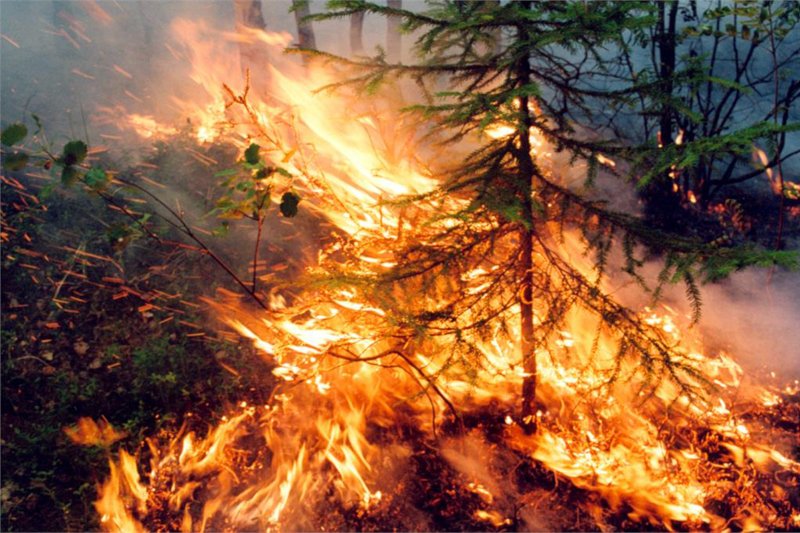WMO: Portions of Arctic warmer than Florida this season

Photo of a wildfire burning in a boreal forest in the Krasnoyarsk region of Russia, Aug. 1, 2019. The Arctic Circle is experiencing a prolonged heatwave, fueling new wildfires in Siberia and other regions of the Arctic Circle this year, according to the World Meteorological Organization. Photo by the Russian Federation Service Aviation Forest Protection/EPA-EFE
July 24 (UPI) -- The World Meteorological Organization said Friday that "exceptional and prolonged" high temperatures in the Arctic have fueled wildfires for a second straight year, threatening the polar bear population and increasing sea ice melt.
Some parts of Siberia have seen temperatures as high as 86 degrees, making it warmer than some parts of Florida, the organization's representative Clare Nullis said during a news conference in Geneva.
On June 20, the Russian town of Verkhoyansk, which is located just inside the Arctic Circle, reached 100.4 degrees.
"We've had exceptional and prolonged heat for months now and this has fueled devastating Arctic fires, and at the same time we're seeing rapidly decreasing sea coverage along the Arctic coast," Nullis said.
Nullis blamed carbon emissions for the increase, which since January is at its highest point in the 18 years the Copernicus Atmosphere Monitoring Service has kept records on the region. There is also a persistent northward swing of the jet stream that has also sent warm air into the region.
"The Arctic is heating more than twice as fast as the global average, impacting local populations and ecosystems and with global repercussions," Nullis said.
Verkhoyansk, which is 3,000 miles east of Moscow, is known for having wild swings in temperatures. In the winter, it has recorded temperatures of minus 50 degrees, making it one of the coldest places on Earth.
Nullis said the polar bear population could become nearly extinct by the end of the century as ice melt continues. The animals depend on the unique Arctic ecosystem to survive.
In May, scientists said "zombie fire," blazes that have smoldered underground in the Arctic after last year's fire season, had erupted again above the surface in Alaska, Canada, Greenland and Russia.
Wildfires from Alaska to Siberia burned thousands of acres in the region last year.
upi.com/7024001
No comments:
Post a Comment